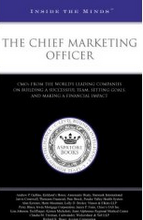 I was in Maryland last week speaking at the 30th Annual PRSA Chesapeake Conference. I had been asked to speak on the topic of how communicators can gain more influence at the c-level executive table.
I was in Maryland last week speaking at the 30th Annual PRSA Chesapeake Conference. I had been asked to speak on the topic of how communicators can gain more influence at the c-level executive table.This is not a question that lends itself to the typical conference diet of case studies or top ten lists. The stakes are higher than that. I tend to think of the times we live in as a kind of “triple witching hour” for both marketers and communicators. Trust in big companies has reached an historic 100-year low. Reputational risk is now seen as a top-ten worry among CEOs. And the new digital era has upended traditional one-way communications programs in favor of two-way dialogue, enabling the public to take more control of the conversational agenda.
These trends and others are making life especially challenging for corporate communicators. But we’re talking about gaining a strong seat at the C-table. So for now, let’s leave aside statistics that show as few as 13% of all Americans are placing their trust in big business, or that on primetime TV you are 21 times more likely to be kidnapped or murdered by a businessman than by the mob. We’ll also shelve for a moment the nettlesome fact that some three-quarters of folks out there feel companies don’t tell the truth in advertising. Or what about that KPMG study a few years ago that found 76% of employees in big companies observed violations of the law or company standards in a 12-month period.
Grim statistics all – but table them for now. Because the real question around the C-table typically comes down to this: how do you lead a company into strong performance?
Turns out that in recent years the low-trust headwinds that are negatively impacting so much of American life are also making leadership more difficult. A startling statistic comes from the Harris Poll, which in 1966 found that 55% of Americans had “a great deal of confidence” in the leaders of big companies. In 2007, only 16% of Americans expressed the same confidence. So imagine you are writing a speech for a company executive in 1966 to help achieve an important operating goal. Maybe you need to rally the troops around a new strategy, or convince customers of the quality of a new product, or persuade legislators that proposed regulation is unwise. Now imagine that same speech being given in 2007. It’s a pretty safe bet that the impact of the speech in the higher trust world of 1966 would have greater impact than those same words delivered in 2007.
The learning here for would-be “trustmeisters” is that our words are less believed today. That’s a big issue because leaders depend on effective communications to sell products, engage employees, and generally manage a business. That’s why communicators must become effective ambassadors of trust for their organizations. Executives who are not looking for ways to tackle the issue of distrust will find that they’ve inadvertently diluted their power as leaders. Communicators and marketers will find a ready seat at the executive table if they can help management take back the high ground.
Easy? Not at all. May the force be with you.







No comments:
Post a Comment